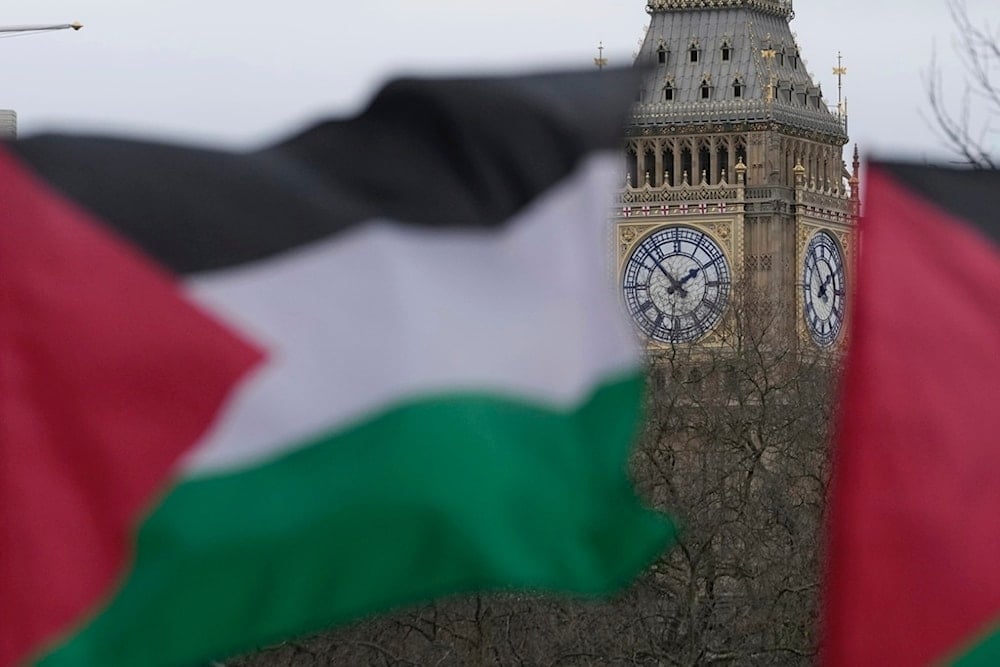UK plans Palestinian state recognition as early as Friday
The UK is preparing to recognize the State of Palestine on Friday, a move rejected by "Israel" and criticized by the US.
-

Pro-Palestinian protesters hold up flags during a demonstration in London, Saturday, Feb. 3, 2024, as they demand for a full cease fire and an end to the siege of Gaza. (AP Photo/Kin Cheung)
The United Kingdom is preparing to formally recognize Palestine as early as Friday, a decision that follows "Israel's" failure to meet conditions that might have delayed the move, such as agreeing to a ceasefire in Gaza.
Prime Minister Keir Starmer insisted the step is unrelated to US President Donald Trump's visit. Trump, speaking at a press conference, said he disagreed with the move but declined to elaborate further.
The UK expects fierce criticism from "Israel," which argues that recognition amounts to a reward for the Palestinian Resistance. London has rejected that claim, stressing it envisions only a Palestinian state in which Hamas is disarmed, excluded from governance, and where the Palestinian Authority leadership faces elections within a year.
Starmer reinforced that position, declaring, "There would be no place for Hamas, insisting the group were terrorists," while adding he agreed with Trump on the need for a roadmap.
The prime minister described recognition as "part of that overall package which hopefully takes us from the appalling situation we're in now to the outcome of a safe and secure Israel, which we do not have, and a viable Palestinian state."
US and European context
The Trump administration has effectively moved away from supporting the so-called "two-state solution", dismissing the UK's recognition as unhelpful. Yet Trump has chosen not to let the issue become a rift with Starmer, viewing it as largely symbolic and unlikely to weaken "Israel."
He is also privately frustrated with Prime Minister Benjamin Netanyahu, both over his refusal to agree to a ceasefire and for his decision to bomb Qatar last week.
Britain had long resisted calls for recognition, arguing it should only occur when it could meaningfully impact the peace process.
After close talks with France, which recognized Palestine on July 25, the UK shifted its stance, concluding that waiting further would allow "Israel's" actions in the West Bank to permanently erode prospects for Palestinian statehood.
Read more: 45% of UK public liken 'Israel's' treatment of Palestinians to Nazis
Palestinian response and domestic debate
On Monday, the head of the Palestinian mission in London, Husam Zomlot, will raise the Palestinian flag at what will become the Palestinian embassy.
Recognition will establish diplomatic relations on a state-to-state basis, though legal advice to the government says it will not create new obligations to sanction "Israel" for what the UK already deems unlawful occupation.
Critics inside Britain argue the decision violates the Montevideo Convention criteria for statehood, pointing to Palestine's contested borders and fractured governance.
Within Labour, however, accusations that "Israel" is committing genocide are fueling pressure for even tougher measures, including the possibility of curtailing trade with "Israel."

 3 Min Read
3 Min Read










